Face-to-face learning sessions help bridge the education gap for Ukrainian children in Romania
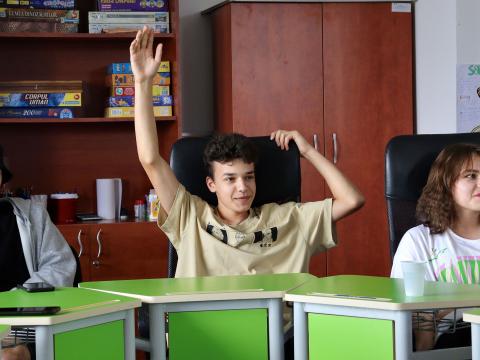
About twelve Ukrainian children rush in, taking their seats impatiently at the bright green tables of the small classroom nestled in a quiet corner on the third floor of World Vision’s Happy Bubble in Cluj-Napoca, northwestern Romania. The green tables are set in a semi-circle, with natural light streaming in through the room’s large windows.
Anna Shevchenko, educator at the child-friendly space, aptly called Happy Bubble, prepares the slide show for the session, which will run no longer than two hours.
“In today’s lesson, we will learn about the power of persuasion in a speech,” Anna begins, bringing the lively audience to a halt for a few seconds. Suddenly, the room is engulfed in a wave of whispers and chuckles.
Anna instructs the children aged 12 to 16 on the fundamentals of persuasive speech before inviting them to participate fully in the role-playing activities.
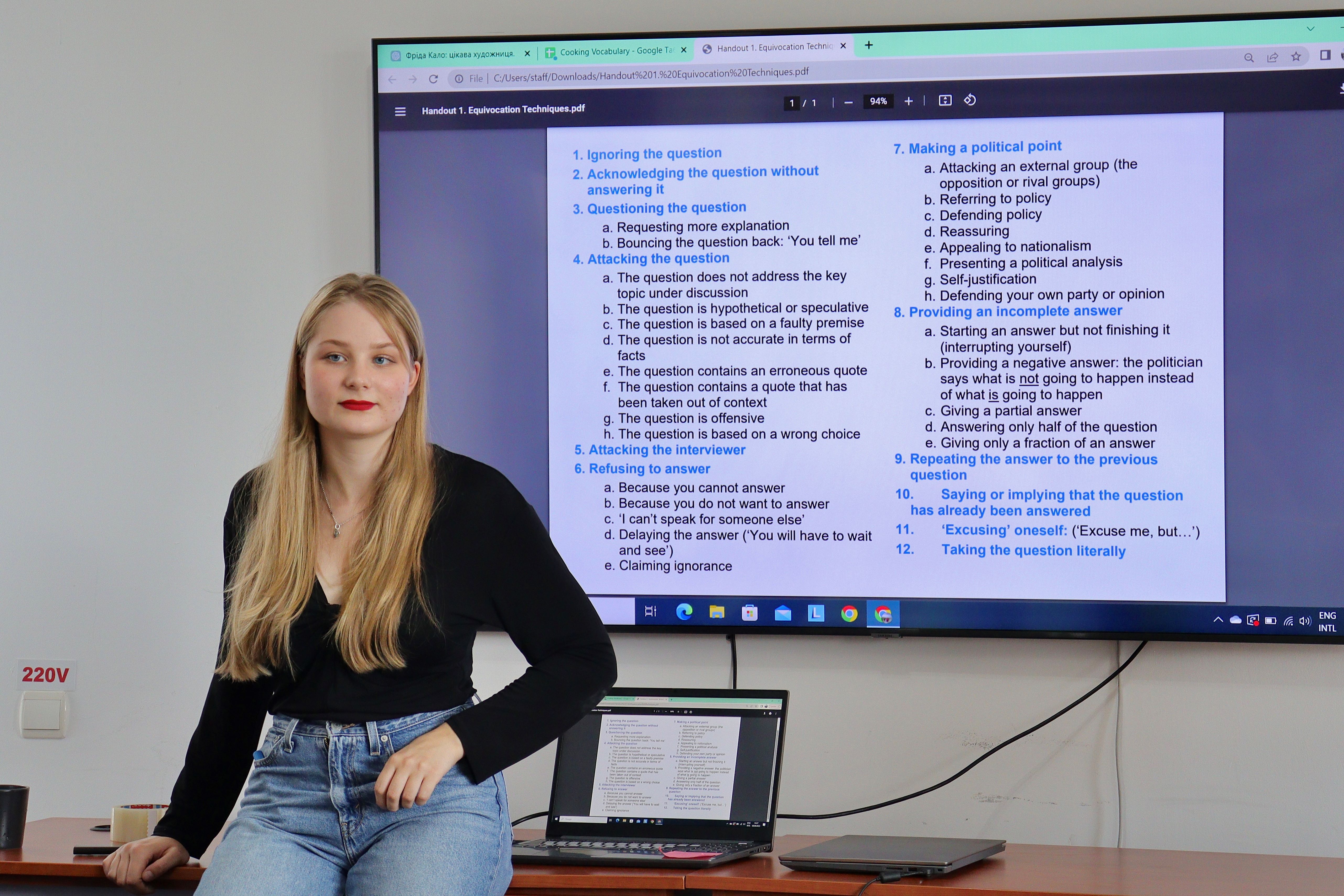
One by one, they step into the shoes of politicians, salespeople, and activists. While they search for an order of arguments, the teacher challenges them with a series of questions that make them rethink their talking points.
Children’s faces light up with excitement when they step in to express their opinions. As the debate goes on, more and more hands are raised. Everyone is engaged in the discussion.
“I’ve seen a dramatic shift in our weekly sessions discussing democracy, free speech, and various global cultures,” shares Anna Shevchenko, who fled war-torn Kyiv and now pursues a bachelor’s degree in international studies in Cluj-Napoca. In her spare time, she comes to teach her fellow Ukrainians.
“These young minds have grown into more open and curious individuals. Their cognitive and social development has increased significantly,” says Anna.
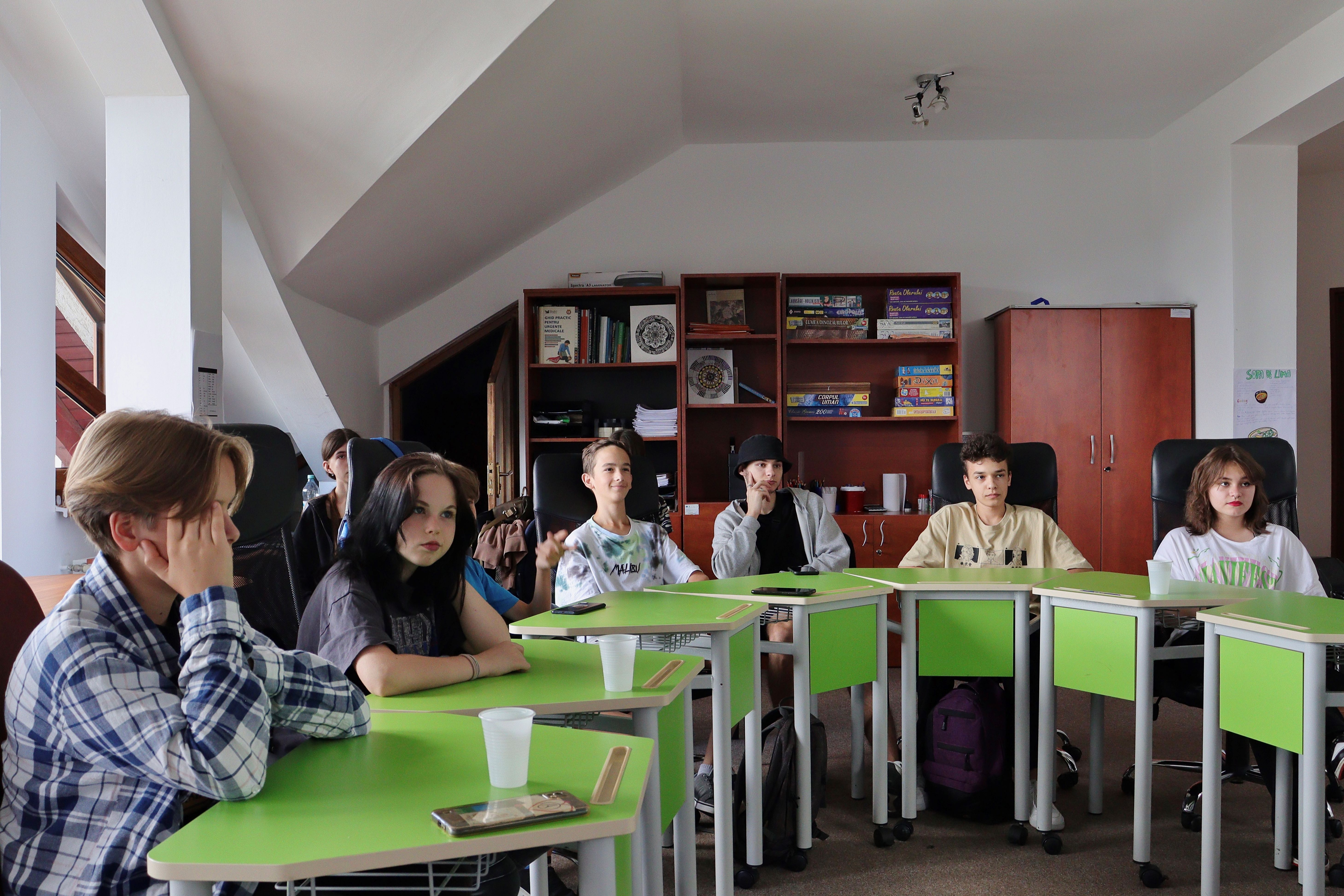
She goes on, “Their communication and social abilities have greatly improved. They grew more open-minded, made friends, and had a desire to learn and improve.”
Yekaterina, 14, flew from Kharkiv and reallocated with her mother and two younger siblings to Romania. She continued her online studies at a Ukrainian school, worried about losing connections with her friends and teachers.
Every day, she spends at least six hours in front of a computer. Her studies are frequently interrupted by air alarms and missiles that occur in Kharkiv. Teachers in Ukraine are forced to postpone classes due to poor internet connection or the impending threat of not being sheltered during an attack.
“Because so many classes are disrupted, it’s usually about individual learning. I lack social interaction,” shares the fourteen-year-old girl.
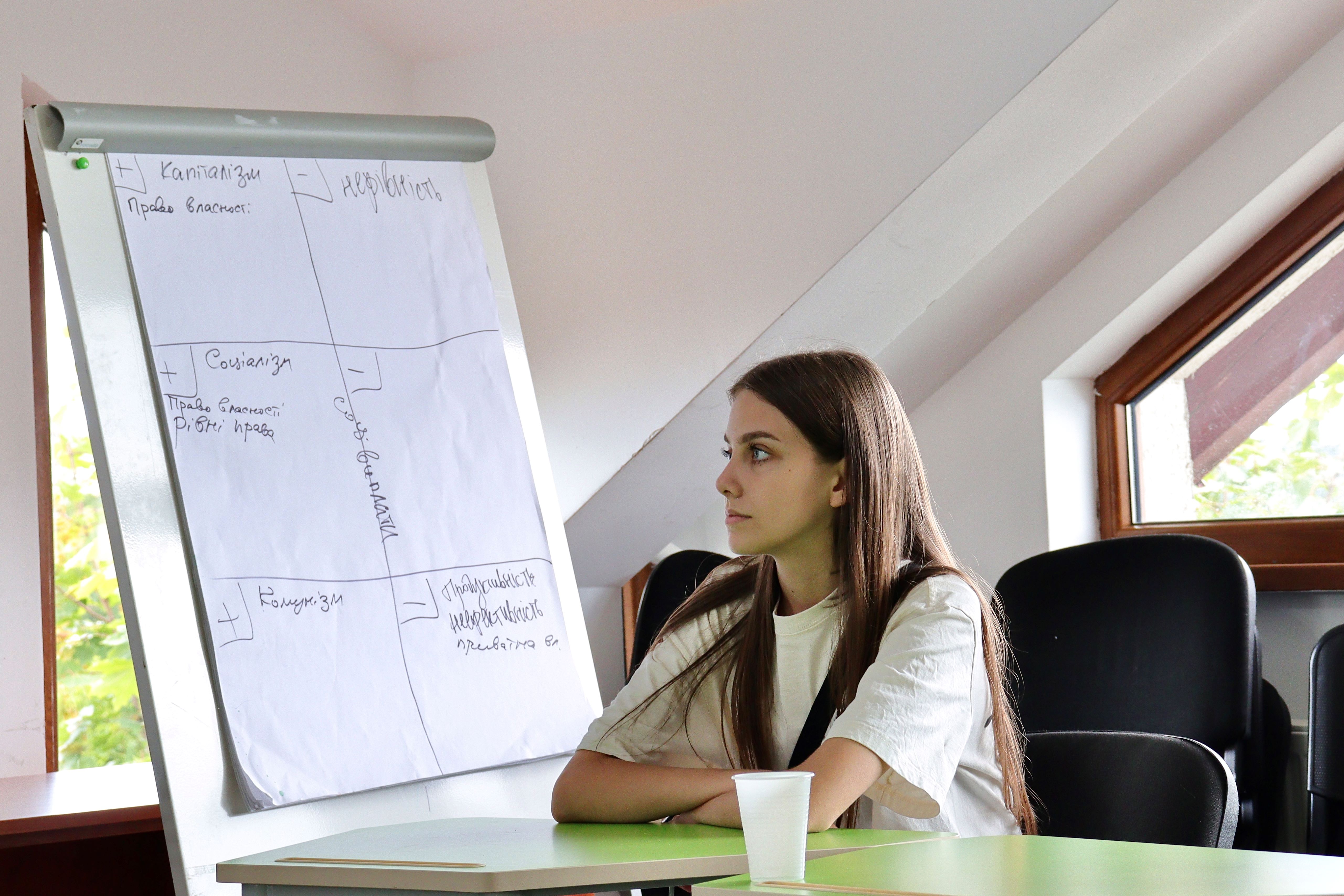
UNHCR estimates 95,639 Ukrainian refugees in Romania this year, with children constituting around 40% of the total.
To date, over 26,000 Ukrainian children have been registered in educational programs in the country, although only a small percentage of them are enrolled in the formal school system. Most Ukrainian students depended on the Ukraine Government’s online learning facility during the 2022-2023 academic year.
I’ve seen a dramatic shift in our weekly sessions discussing democracy, free speech, and various global cultures. These young minds have grown into more open and curious individuals.
As of today, only one-third of elementary and secondary school-aged children in Ukraine are studying fully in-person, while more than half of Ukrainian refugee children from preschool to secondary school age are not registered in national education systems in any of the seven countries hosting refugees.
World Vision organizes weekly face-to-face educational activities for Ukrainian children across Romania, meant to increase social skills, stimulate cognitive development, and help with mental health issues caused by separation, war, and displacement.
“These classes are fantastic. In less than a year, I’ve found and learnt about areas I was previously unaware of,” says Yekaterina.
“We’ve talked about financial education, history, and culture. They’ve inspired me to learn and explore more,” she adds.
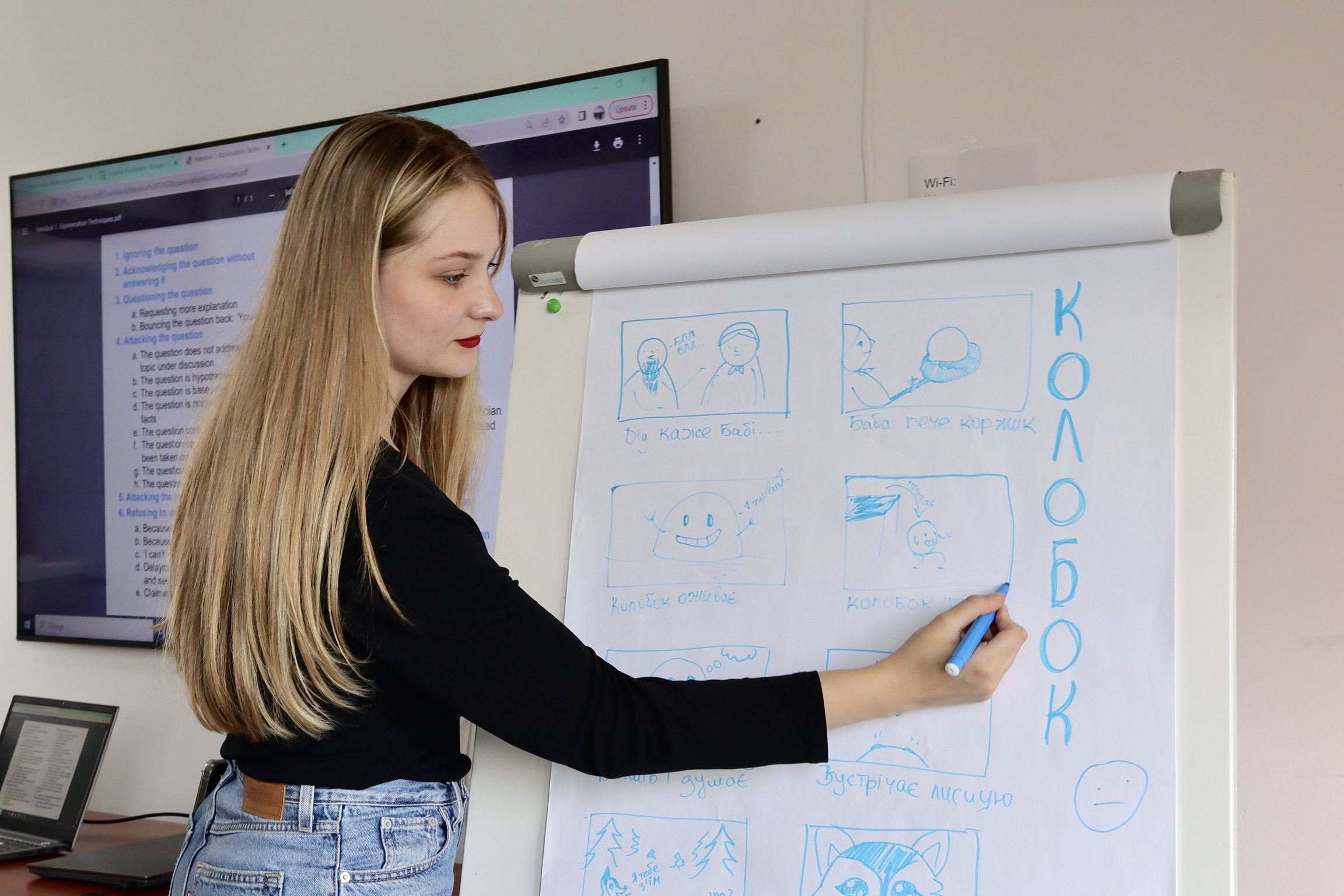
Teachers at World Vision’s child-friendly spaces were able to access educational resources more easily through the support of Hewlett-Packard and the Global Business Coalition for Education, who provided 500 laptops across educational facilities, hub centers, and individuals in Romania.
“These laptops have been a complete game changer for our educators. They have made class preparation easier than ever before,” shares Anna Shevchenko.
“We can focus more on providing better education if we have simple access to resources, lesson preparation, and communication tools.”
She goes on, “It has changed the way we prepare for courses and improved our capacity to deliver quality education to our students.”
Since the start of the war, more than 239,000 children have benefited from education programming in Ukraine and the host countries of Romania, Moldova, and Georgia. As part of World Vision’s Ukraine Crisis Response, over 11, 000 education kits were provided across four countries.
Story and photos by Laurentia Jora, Romania and Moldova Communications Coordinator